It is symbolic that the airframe of the first mass-produced transport aircraft An-178, number 006, was built at the Antonov Company just before Ukraine's Independence Day. The prototype took to the skies back in May 2015. The 006 is currently equipped with Ukrainian and Western components instead of their Russian analogs. The plane will then fly to its permanent place of service - to the units of the National Police of Peru. Peruvians have chosen the aircraft due to the unique combination of technical characteristics – speed and load capacity. Five more similar aircraft, which were also of interest to operators from other countries, have already been put into production. President of the Antonov Company Oleksandr Los spoke in an interview with Ukrinform about how the domestic aircraft industry is restoring markets while getting rid of its long-standing dependence on Russia.
From the author
Aircraft construction is a long and painstaking process. The real holiday comes for aircraft builders when they finish the "body" of the future aircraft - its airframe - with its wings attached to the fuselage. This is the most solemn moment. There is a lot of work and testing to be done, but the plane is believed to have been born.

In the shop of the Antonov Company, the 006 still looks "childish" because of the bright primer of its fuselage. But the inscription "Police" has already been placed on the body. The Ministry of the Interior of Peru has chosen the Ukrainian aircraft as it is adapted to work in the specific conditions of mountain airports. Peruvians were impressed by the unique combination of speed (825 km/h) and load capacity (18 tonnes) of this member of the Antonov family.
The An-178 aircraft is designed for the delivery of personnel, weapons and light equipment, transportation of materials, mail and other cargo. In emergency situations, it can be used to evacuate the population from the disaster area, transport the wounded, land rescue teams and more.
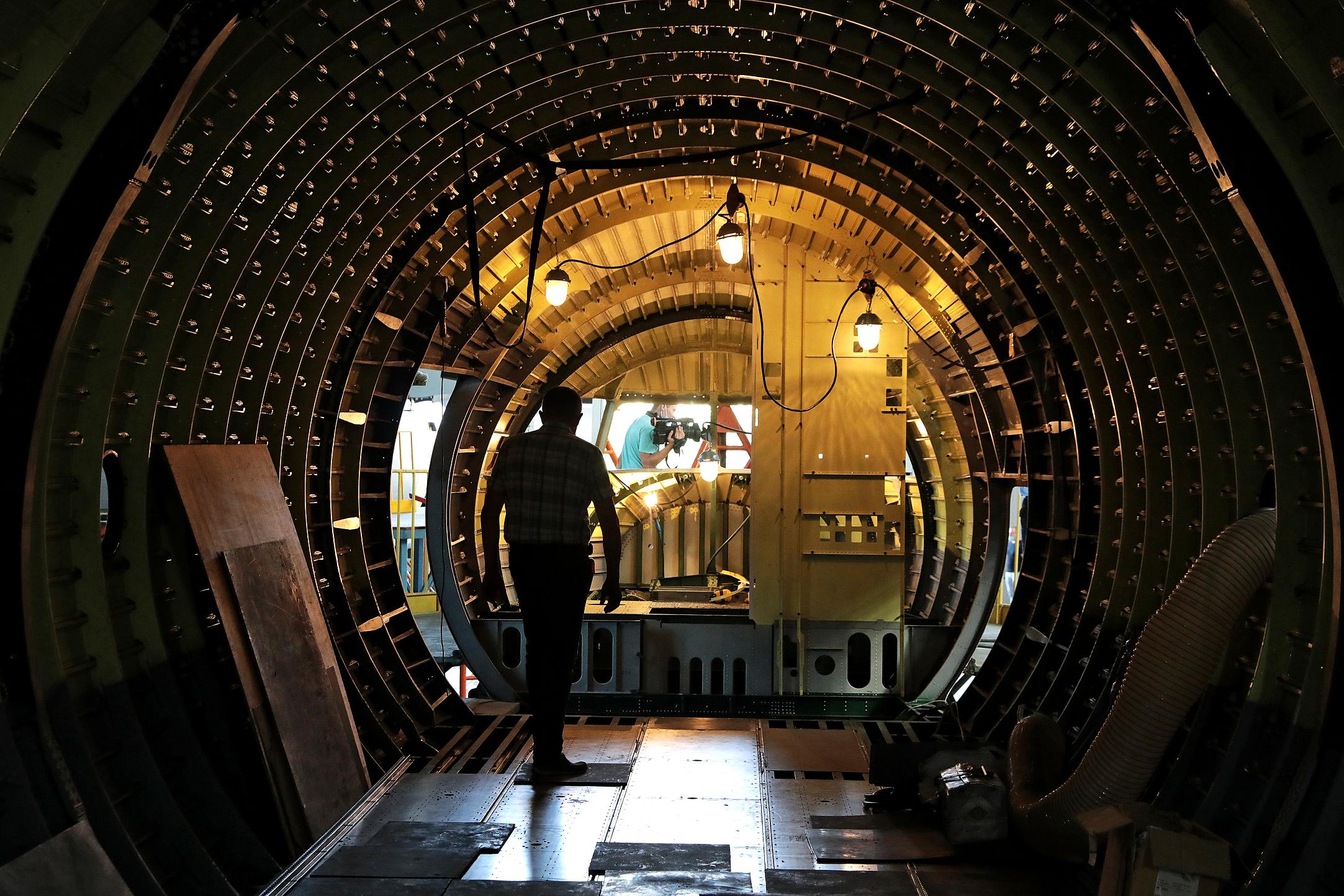
A unique feature of the aircraft is its ability to transport almost all existing types of packaged cargo in the world - both in containers and on pallets, including 1C containers.
"The aircraft can be based on runways with artificial turf, as well as on prepared ground runways, which makes it a real aviation SUV. At the same time, the aircraft is quite inexpensive to maintain, as it does not have screws, which significantly increase the cost of maintenance," said Oleksandr Los, President of the Antonov Company.
Mr. Los is very happy with the fact that the An-178 could win an extremely difficult international tender from its famous competitors, and the company's staff prepared a gift for Ukraine for its 29th birthday in the form of a finished airframe of the first mass-produced aircraft without Russian components.
Question: Was it difficult to win the tender for the supply of aircraft for the Ministry of the Interior of Peru?
Answer: Similar aircraft in Europe are produced by only three manufacturers – France/Spain, Ukraine, and Russia. Russians are now under sanctions and they look at our plane with envy, because we have occupied a unique niche of high-speed tactical aircraft. Our potential competitors are currently Leonardo and Airbus aircraft. Creating an airplane is always a very serious competitive and political struggle. We treat our colleagues in the industry with the utmost respect, despite various insinuations from others. Their planes and offers were also very good, but ours were better.
Question: Have you won the tender in terms of finances or technical characteristics?
Answer: A favorable price was a nice addition for our customers. Why don't our competitors like this plane so much? Because they have nothing comparable to offer. The An-178 occupies a promising niche - it has a unique combination of speed, load capacity and takeoff and landing capabilities.
As for the tender for Peru, there were no significant additional technical requirements for this aircraft from the Peruvian side, as the aircraft is already intended for operation in mountainous areas at high-altitude airports. However, I can't tell you the amount of the contract - it's a trade secret. In general, depending on the configuration of the service package, the cost of one An-178 is $60-70 million.
Question: In your official reports you talked about enhanced requirements for the maintenance of these planes. What did you mean?
Answer: The contract includes a package of service and maintenance for several years. Enhanced requirements apply to regulatory service life, in particular, compliance with the time of repair work.
Question: Is the process going according to schedule?
Answer: Now you see that the plane, as an aerial vehicle, is already complete. Then we have to equip the aircraft with systems, wiring, pipelines, electronic units. Then the aircraft is sent for testing.
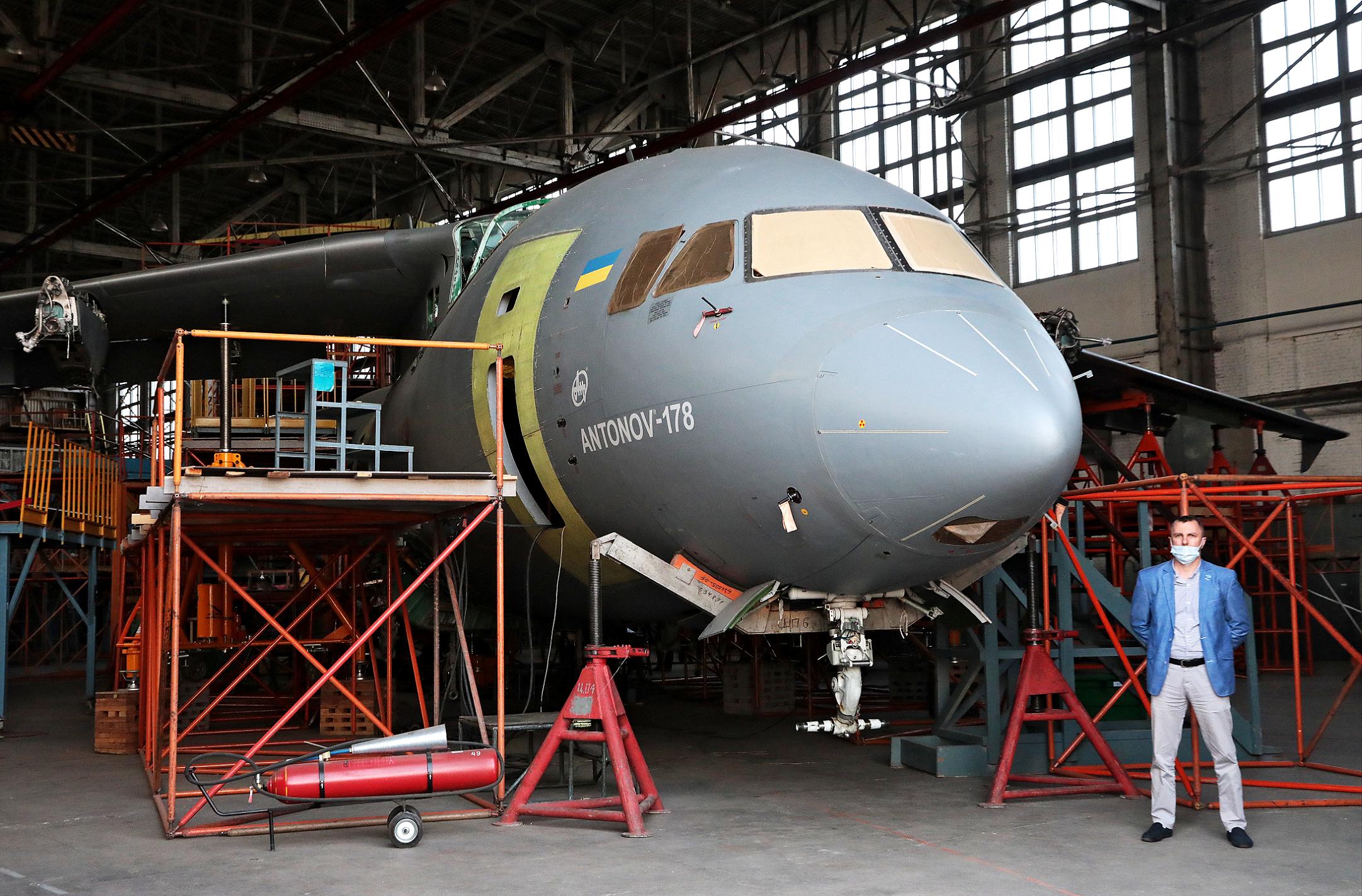
Separately, I want to emphasize that this is our first mass-produced aircraft, which is assembled without any Russian components. We are accused of not mass-producing aircraft for several years. However, with the onset of Russian military aggression in 2014, we lost not only the market, but also the market for the supply of important components. It took us some time for import substitution and the search for new suppliers.
Specifically, this type of aircraft has about two-thirds of equipment manufactured by U.S. corporations and a third of domestic equipment. Moreover, we carried out design work to replace Russian components at our own expense. In fact, broad international cooperation was envisaged back in 2010-2011 during the development of the An-178 project. In 2015-2016, we continued this planned work.
Question: Has import substitution increased the cost of manufacturing the aircraft?
Answer: American equipment turned out to be cheaper than Russian one.
Question: How quickly did you manage to reach an agreement with Americans?
Answer: The disastrous state policy of the past decades, which ended in Russia's war against our state, had disastrous consequences for Antonov's international reputation. It was unfortunate to hear from foreigners back in 2015 that "Ukraine is the same Russia" and that "Antonov is a Russian company." In general, the process of melting this "ice" took about two years, and this active international educational work by Antonov continues.
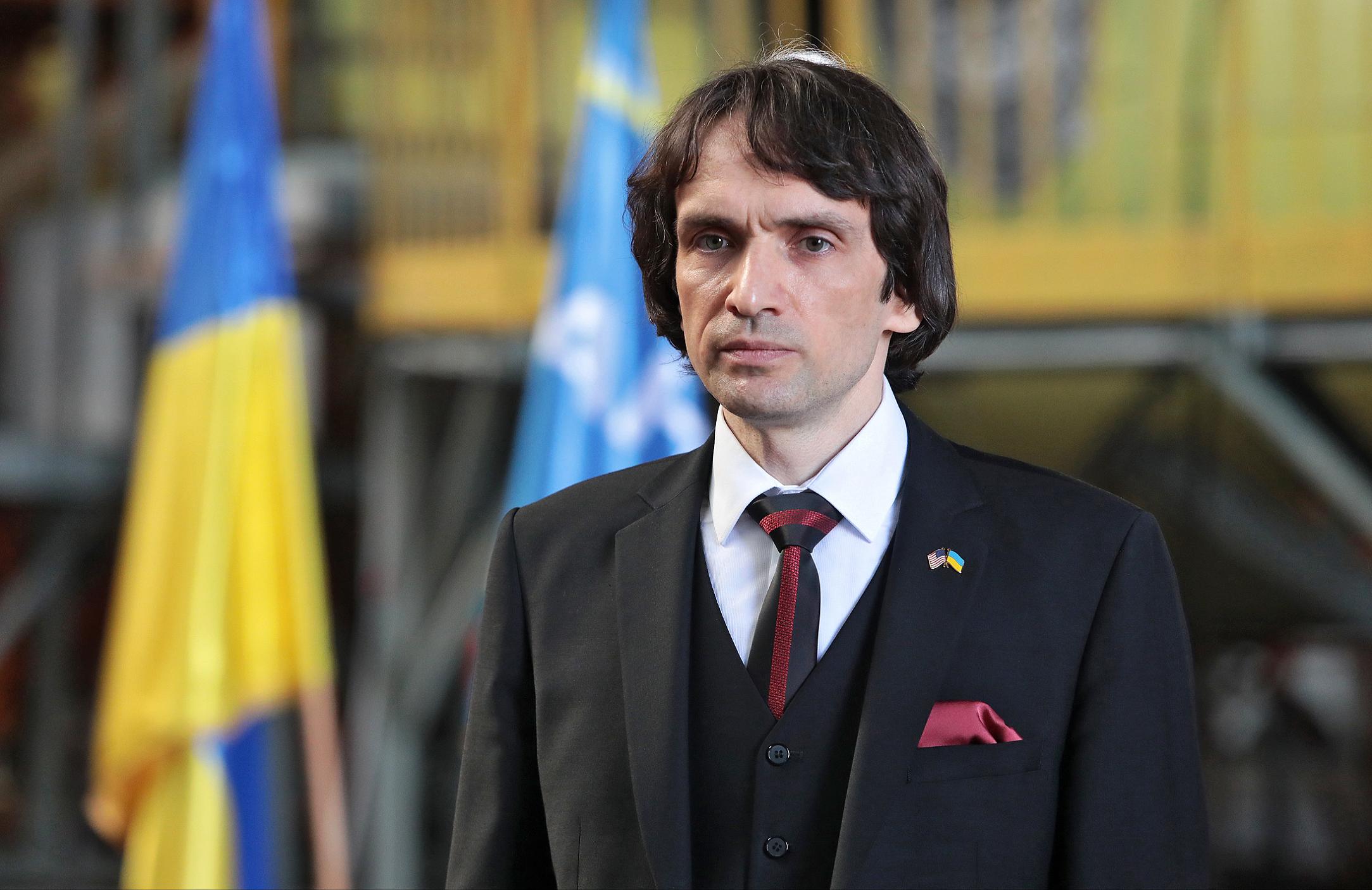
Question: Is a pin on your lapel [in the form of the state flags of the United States and Ukraine] connected with this?
Answer: Yes, it is. I am grateful to my U.S. colleagues who responded to our request and today are accelerating the supply of the full range of equipment for the An-178 and not only that. On the other hand, it symbolizes Antonov's openness and mutual responsibility to our colleagues from the United States and partner countries for compliance with international rules of export control.
Question: What is the most difficult stage left?
Answer: The most difficult stage is flight tests that we will conduct on the prototype aircraft. Today, everything is built on digital technology and software, so the most critical thing is to avoid mistakes at the design stage and formulate requirements for this equipment. All this can be finally checked and detected only during flight tests.
The active certification phase has now begun. The aircraft will be initially certified by the State Aviation Service of Ukraine. The aircraft's airworthiness standards were adopted according to the standards of the U.S. Federal Aviation Administration (FAA). FAA representatives have already visited Antonov at the beginning of this year.
Question: If the plane is certified by the FAA, will it be recognized in other countries?
Answer: Absolutely. This system works all over the world.
Question: How long will it take in general?
Answer: The process is not fast. There is a saying that a plane has the right to take off only when the weight of the papers describing the plane is equal to its takeoff weight. In the case of the An-178, it's about 50 tonnes (laughs). In fact, they are terabytes of electronic documents. But we will cope with the initial certification until the aircraft is handed over to the customer.
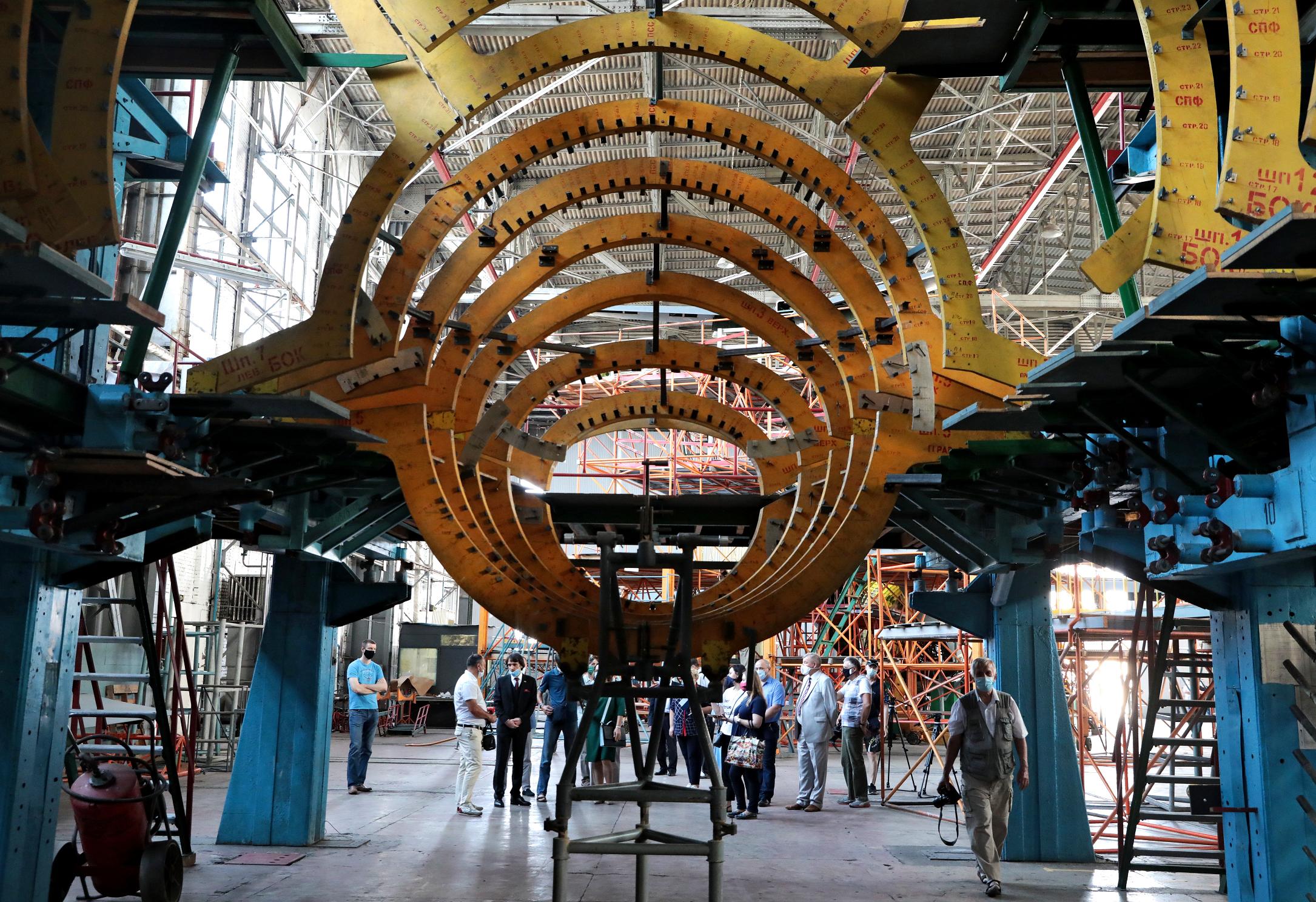
Question: Were Antonov aircraft previously certified in Russia?
Answer: Yes, they were. Formally, it was a certification body of the CIS countries - the Interstate Aviation Committee (IAC). Now in Russia, these functions have been taken over by the Federal Air Transport Agency (Rosaviatsia). Of course, this entity acts solely in the interests of the Russian Federation. It has taken away from us "not in a completely transparent way" the control of extending the airworthiness and technical resource of Antonov aircraft in Russia and is trying to take over this control from all other countries, which is a great technical danger and threat to human life.
Question: What is your estimated capacity for assembling aircraft?
Answer: We can assemble 10-12 planes of this type per year. We see great prospects for this aircraft and the entire aviation family founded on its basis. Another step we are already taking is to create a heavy aircraft An-188, which develops the An-77 concept, but at the next technological level. Also in the pipeline is a project to modernize the An-158 passenger aircraft. In addition, work is underway to design a promising passenger aircraft, which we are conducting in the development of cooperation with our foreign partners.
Question: Do you face the personnel problem that has been discussed so much lately? Are there enough engineers, skilled workers?
Answer: Fortunately, we have preserved the design and development staff that maintains a high technical culture and production school. Our brand and technological capabilities attract qualified staff. The company, in fact, is a school of personnel for the entire aviation industry of Ukraine. It is not by chance that a lot of dirt is poured on us and our work not just from Russian and other media resources... They always try to compromise the Antonov Company in the eyes of potential customers.
Question: Do internal political conflicts surrounding the company pose any obstacles to your work?
Answer: This is a difficult stage in the transformation of management bodies, but the team works selflessly, despite financial difficulties or political turmoil. As our enterprise occupies a huge territory within Kyiv, there are always people willing to control it. We have had to fight such encroachments on a regular basis since the late 1980s. Unfortunately, instead of focusing on commercially viable, innovative production, the team has to spend its resources on all sorts of "policies." It is a pity that we have to fight not only on the international stage, but also on the domestic political stage.
Question: Will the transformation of Ukroboronprom, under which your company is to be included in the space and aviation conglomerate, help you with this issue? How do you assess the prospects for such a decision?
Answer: Currently, our trade unions and foreign colleagues are very closely monitoring this issue. The process has just begun, and socio-political discussions are underway, so it is premature to make any statements now.
Question: What do you personally think? Will it be good or not?
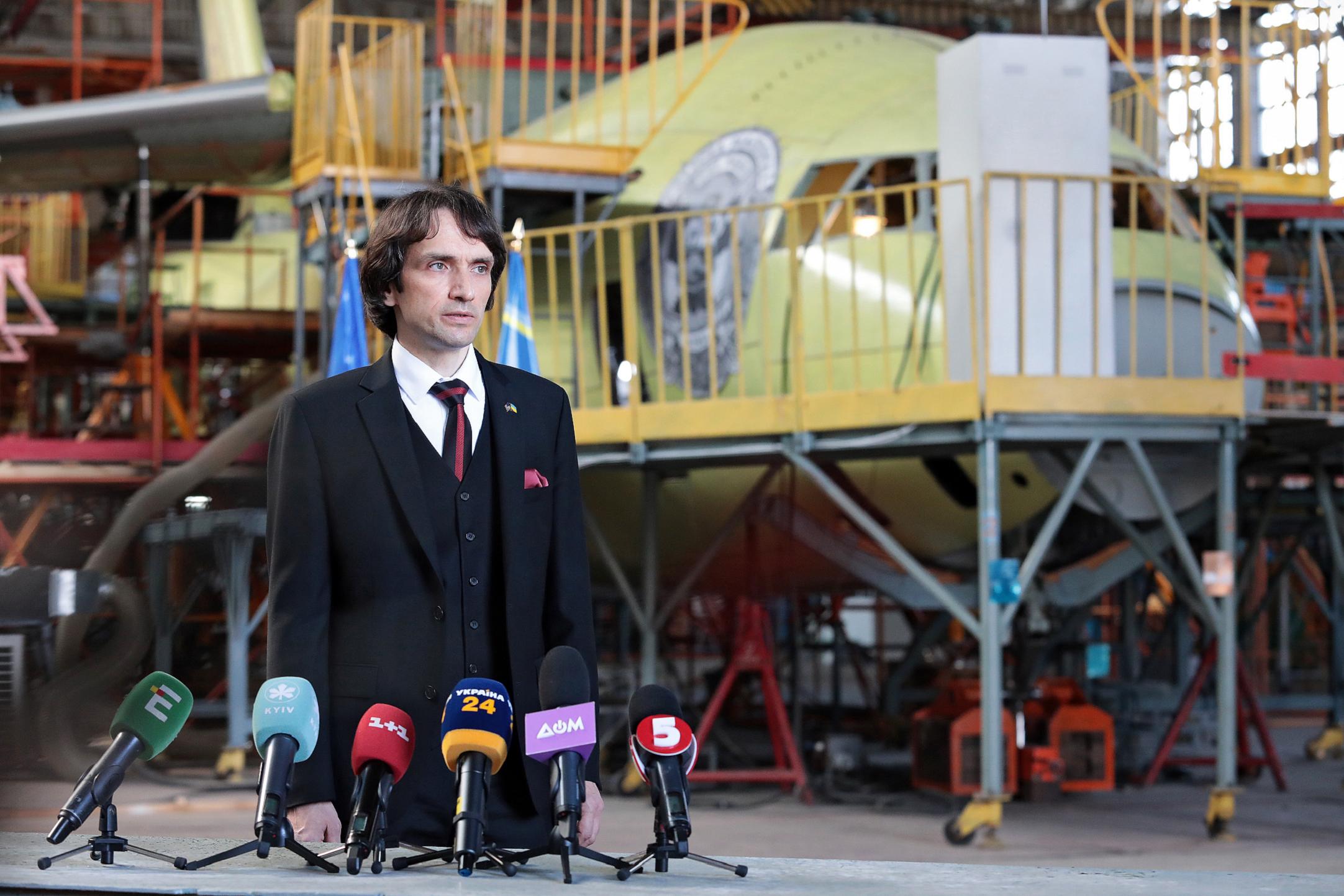
Answer: I am convinced only that we in any case have to keep our team, technological base and, first and foremost, the reputation of the enterprise. You can't imagine how painful all sorts of political changes and perturbations around the Antonov Company are for our export opportunities. Let me remind you that Antonov produces dual-use products. Every time our Western partners have doubts about production and technological capabilities, or export control. And competitors do not sleep.
Antonov today is a value category and, without exaggeration, an advertising sign of our country in the world, which increases the status of every scientist and engineer from Ukraine! Any, even the smallest stain on this sign will be studied very carefully. It would be extremely unwise to make so that we could lose the reputation of the country that gave birth to the plane with the Ukrainian name "Mriya."
Ukraine must continue to develop in the world as a country that provides strategic air transportation. We must remain a highly developed country - intellectually and technologically.
Question: Is it true that you can produce hundreds of planes in the near future?
Answer: It can be realistic in several years. We have not received such requests over the past 30 years. Regarding the An-178, the demand is approximately within the following limits. If there were about two dozen planes ready for takeoff, there would already be customers for them. We are constantly looking for clients and potential consumers in different parts of the world. We have special hopes for the southern countries and direct our efforts there. However, the purchase of aircraft in the world is a much-politicized issue. Historical experience shows that airplanes are "sold" by presidents, rather than aircraft manufacturers. An extremely important factor in the foreign market is whether the aircraft are used in your own country. This is the first thing potential customers ask. We have a positive answer. Draft contracts are currently being worked out for the supply of about 30 An-178 aircraft for the Ukrainian Defense Ministry and the Ukrainian Interior Ministry to replace our legendary veterans An-26, An-12, An-72. After all, there are problems with their maintenance due to the impossibility of supplying Russian equipment. These planes are up to 90% equipped with Russian components.
Now we are updating the model range and re-entering the markets we occupied earlier. The whole world knows Antonov as a manufacturer of reliable aircraft, but it is necessary to restore confidence in the country and the company. Antonov planes have always been and still are beautiful.
Oksana Polishchuk, Kyiv

